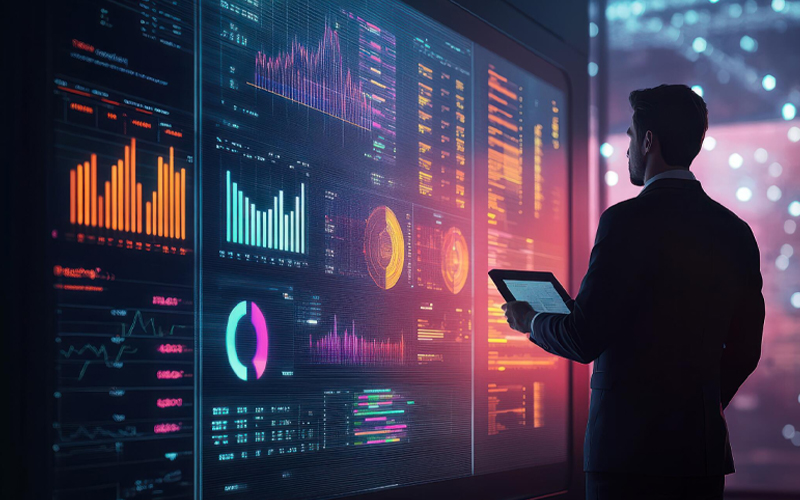Financial crimes are not new; however, the scale at which the crime is proliferating globally today is surely alarming. The 2024 Global Financial Crime Report estimated USD 3.1 trillion in illicit funds moved through the global financial system. The first line of defence against financial crimes is the AML Investigator, a professional trained for anti-money laundering detection. In a growing digital environment, these specialists play an important role in preventing fraud and stopping illegal money from slipping through the loopholes of financial systems.
understanding anti-money laundering
Money laundering refers to the process of converting money obtained through illegal means into legitimate income. Anti-money laundering is the framework through which this financial crime is uncovered, prevented and contained. Anti-money laundering detection techniques involve rigorous oversight, investigating suspicious activities and monitoring of financial systems for loopholes. It also includes filing Suspicious Activity Reports (SARs) and cooperating with law enforcement authorities and regulators.
AML Investigators: Fighting at the frontline
An AML investigator identifies and analyses suspicious activities, detects potential money laundering schemes and escalates cases for investigation. Equipped with a diverse range of skills and advanced analytics, AML investigators liaise with regulators and law enforcement, and auditors to monitor and prioritise risks and protect the global financial ecosystem. They must also have an in-depth understanding of the business they protect and their customers. Moreover, AML investigators stay updated with the latest regulations, frameworks and money laundering detection systems.
key skills for AML investigators
An AML investigator must be equipped with analytical insight, technical expertise, and knowledge of AML laws and regulations to identify potential risks, unusual patterns, and collaborate with stakeholders for timely risk management. The role also calls for skills of risk assessment and due diligence, communication and above all, an ethical mindset to take the correct action.
knowledge of AML laws and regulations
(a) Knowledge of money laundering practices is key to identifying financial fraud. Some of the modus operandi include placing illicit funds, layering or masking funds through multiple transactions, and integrating the illegal flows into legitimate routes to whitewash them. A deep understanding of various techniques enables AML investigators to identify and flag suspicious activities accurately.
(b) Familiarity with compliance frameworks is of utmost importance to ensure AML investigations align with regulatory requirements. Some of the common frameworks include Know Your Customer (KYC) procedures, Customer Due Diligence (CDD) and Suspicious Activity Reporting (SAR). Moreover, they must stay updated with global AML laws, including the FATF Recommendations, EU AML Directives, the new EU AML Authority (AMLA), the USA PATRIOT Act, the Bank Secrecy Act (BSA), and India’s Prevention of Money Laundering Act (PMLA).
analytical skills
(a) Analysis of complex financial data is a multifaceted activity that requires skills of reviewing and interpreting financial statements, transaction logs and other information to detect anomalies. An AML investigator must have a sharp analytical sense to filter through relevant data with a keen eye for detail and the ability to connect the dots of even unrelated pieces of information.
(b) Identification of patterns and trends is a key aspect of anti-money laundering detection. By analysing extensive data over time, AML investigators can use their analytical skills to identify trends and unusual patterns to expose potential illegal activity. This skill is honed through experience, knowledge and deep understanding of customer behaviour and typical business transactions.
technical expertise
(a) Use of AML software has become important, especially while dealing with a large volume of data or while carrying out real-time monitoring. Technically proficient AML investigators use AML software and other tools to their advantage, saving time and effort.
(b) Keeping up with new technologies is a must as newer frauds populate the digital environment. AML investigators must stay up to date with the latest advancements, such as blockchain analytics, graph-based detection and AI-powered risk management in money laundering detection systems, to stay a step ahead of the threat actors.
risk assessment
Using experience, knowledge and analytical skills, AML investigators assess risks and conduct due diligence on customers (CDD) to ensure that clients and their transactions are legitimate and comply with AML laws. They assess multiple elements, including the type of customer’s business, typical transaction behaviours, and geographic considerations. Moreover, due diligence activities help stop potential risks from spiralling into fraud and meet compliance requirements.
communication and collaboration
An AML investigator’s job doesn’t end at identifying risks. The next step is to communicate these risks through detailed Suspicious Activity Reports (SAR) to law enforcement and regulatory agencies. Excellent communication skills and teamwork are essential for working together for the safety of the financial ecosystem.
ethical mindset
Professional ethics, confidentiality, honesty and transparency are also key to AML detection. Analysts are entrusted with sensitive data that can be misused; hence, they should avoid anything that causes a conflict of interest and compromises their professional integrity.
how Infosys BPM can help with anti-money laundering investigations
Infosys BPM understands the intricacies of anti-money laundering detection and the pressure on financial institutions to deliver faster, more accurate outcomes. Our financial crime compliance services leverage AI-powered money laundering detection systems, advanced case management tools, and skilled professionals to support end-to-end investigation workflows.








